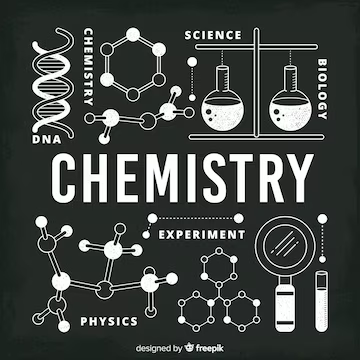
Studying Chemistry can feel overwhelming for many students because it combines calculations, theories, reactions, and real-life applications. However, with the right study approach, anyone can master the subject confidently. This guide answers the most common “How to…?” questions students ask when trying to improve their understanding of Chemistry. Each section offers clear, practical steps that make learning easier, faster, and more enjoyable.
How to Understand Basic Chemistry Concepts Before Going Deeper
Chemistry builds up like a staircase if you skip a step, everything becomes confusing.
Start by strengthening your foundation:
- Learn and memorize the Periodic Table trends (atomic size, electronegativity, ionization energy).
- Understand the meaning of atoms, ions, molecules, compounds, mixtures, isotopes, and valence electrons.
- Master basic chemical equations and the idea of balancing reactions.
- Revisit general science concepts like states of matter, energy changes, and measurement units.
A strong foundation helps you understand advanced topics without stress.
How to Study Chemistry Formulas and Reactions Without Forgetting Them
Chemistry is filled with formulas, but you don’t need to cram everything. Instead:
- Break formulas into meaningful components and understand what each variable represents.
- Practice writing the same formula repeatedly until it becomes natural.
- Use flashcards to memorize common acids, bases, salts, gases, and important reactions.
- Create short mnemonics to remember reaction series and periodic trends.
Understanding > memorizing. Once you understand a formula, it sticks permanently.
How to Solve Chemistry Calculations With Speed and Accuracy
Chemistry calculations become easier with consistent practice. Here’s how to sharpen your solving skills:
- Master mole concepts, concentration calculations, gas laws, and stoichiometry first.
- Study solved examples step-by-step before attempting questions on your own.
- Always write out formulas before substituting values this prevents errors.
- Practice questions daily to improve speed and build confidence.
With time, calculations become the easiest part of Chemistry.
How to Study Chemistry Practicals and Experiments Without Fear
Practical questions always appear in exams. To prepare:
- Memorize apparatus names, diagrams, and functions.
- Understand common laboratory tests for salts, gases, and organic compounds.
- Practice writing correct observation inference statements.
- Watch video demonstrations of experiments to improve your understanding.
Practical mastery boosts both your exam results and real-life lab confidence.
How to Revise Chemistry Before an Exam for Best Results
Chemistry revision becomes more effective when done properly:
- Use past questions to test your mastery of each topic.
- Summarize each chapter into short notes or mind maps.
- Review equations, periodic trends, organic reactions, and definitions.
- Practice under timed conditions to simulate exam pressure.
- Focus on weak topics two days before the exam.
Steady revision leads to steady success.
How to Stay Motivated While Studying Chemistry
To avoid burnout:
- Study in short sessions (25–30 minutes) with short breaks.
- Reward yourself for hitting small targets.
- Study with friends or groups when needed.
- Track your progress using a checklist of topics.
Motivation grows when you see improvement so start small and stay consistent.
Conclusion
You don’t need to be a “science genius” to understand Chemistry. With the right study strategy, constant practice, and smart revision techniques, anyone can excel.
Leave a Reply